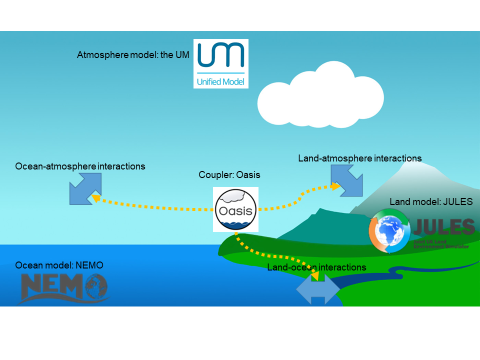Predicting combined effects of multiple coastal hazards on an island nation of connected coastal habitats
Coastal hazards such as sea level rise, storm frequency and flooding are projected to increase with global warming. The effects of combined multi-hazards at coastal interfaces where land, rivers, oceans, seabed and atmosphere meet is not yet well understood.
Coastal flooding and erosion are significantly controlled by local habitats including saltmarshes, seagrass beds and kelp forests, some of which provide protection such as wave dampening. Issues with hard-engineered coastal defences have driven advocacy of these "natural solutions" but what will their capability and resilience be in the long term?
CHAMFER brings together expertise from UKCEH, the British Geological Survey (BGS) and the National Oceanography Centre (NOC) to model how multi-hazards control coastal flooding and erosion in response to climate change over the next 100 years.




